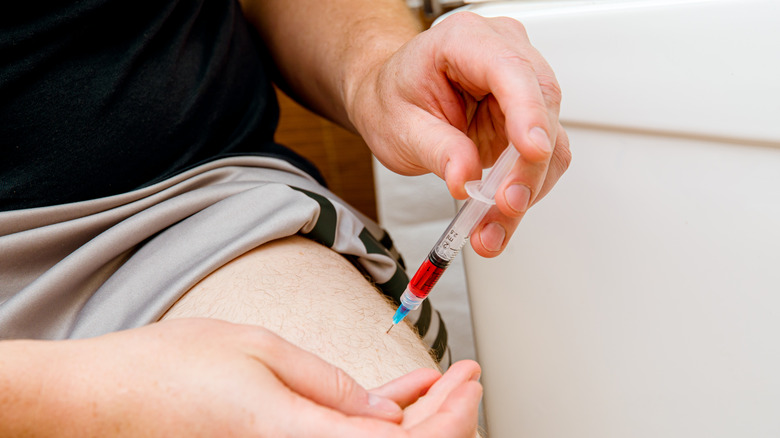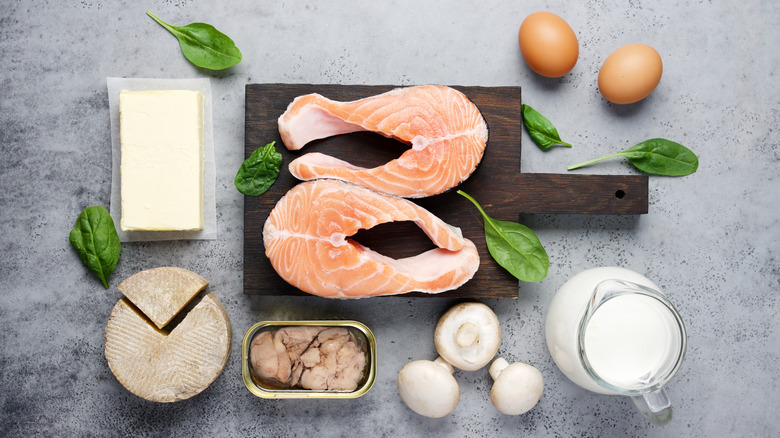This Is How Long It Takes For A Vitamin B12 Injection To Start Working
If you are someone who relies on vitamin B12 injections (sometimes known as Vitamin B12 shots), then you likely want the benefits to kick in as quickly as possible. Medical News Today reports that vitamin B12 injections are only available by prescription and must be administered by a licensed medical professional. For people who experience vitamin B12 deficiency, they can be a critical source of this essential vitamin the body needs to generate energy.
Vitamin B12 is a water-soluble vitamin that maintains nerve and brain health, while also aiding in red blood cell production (via Healthline). Deficiency of vitamin B12 is a condition in which the body doesn't make enough red blood cells and does not receive enough Vitamin B12, per the National Health Service (NHS). It's also known as folate deficiency anemia or cobalamin deficiency. Symptoms of a vitamin B12 deficiency include fatigue, lacking energy, loss of appetite, headache, mouth ulcers, changes in vision, feelings of depression, and hindered mental capabilities. Ensuring that you're getting enough of each vital component your body needs to thrive is key. If you're deficient in B12, there are many ways to supplement the vitamin — both through diet and concentrated methods.
Where to find Vitamin B12
For people who have a deficiency, vitamin B12 injections can be administered by a qualified healthcare professional (per Anazoa MD). In fact, B12 shots are the best way to obtain the vitamin for people experiencing a deficiency — and luckily, they kick into action pretty quickly. Once you receive a vitamin B12 injection, your body should start to create fresh red blood cells within a 48 to 72-hour timeframe, and you'll be on your way to feeling better. Depending on the degree of the deficiency, your doctor may recommend that you receive subsequent injections over a few weeks or ongoing, routine appointments. If needles aren't your thing, B12 supplements are also available in capsule, tablet, and liquid forms, which can often be purchased over-the-counter (via Medical News Today).
Whether you have a deficiency or you simply want to make certain that you're eating a well-rounded diet, there are many foods that contain vitamin B12. Healthline recommends foods rich in vitamin B12, including beef, eggs, dairy, and fortified cereals. Milk is also a good vitamin source, but for those who are lactose-free, there are options for fortified non-dairy milk. Fish is also rich in B12 — especially tuna, trout, and salmon. Each day, adults should aim for consuming approximately 2.4 micrograms of B12, says Mayo Clinic. If you have symptoms of Vitamin B12 deficiency, consult with your doctor.


